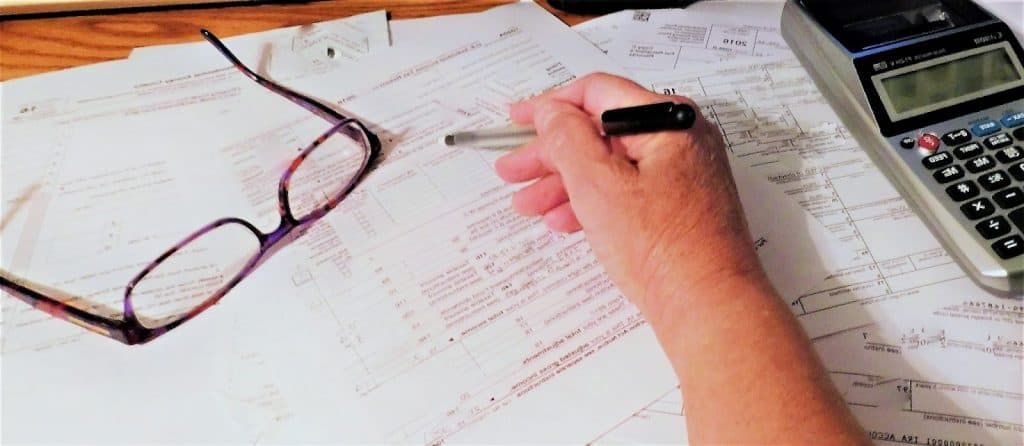Business owners can claim a tax deduction for most of the expenses incurred in running their business, provided the expenses are directly related to earning taxable income.
This sounds simple enough, but many people don’t understand how to claim maximum tax deductions as they don’t know what constitutes an eligible deduction for business expenses.
We’ve compiled this guide with everything you need to know about business tax deductions and how to utilise them to increase your tax refund.
What Business Expenses Can You Claim Deductions For?
A tax deduction doesn’t mean lodging your tax return and receiving the entire amount back from the Australian Tax Office (ATO). Instead, tax deductions reduce your assessable income, so you only get a portion of the amount back for the deductible items.
Most expenses that are needed to run your business are tax-deductible:
- you cannot earn an income without them,
- the expense is used for business purposes and not for personal or private,
- you have records up to five years (such as receipts) to substantiate what you claim.
Common examples of business expenses that can be claimed for a tax deduction include:
- Vehicle expenses or transportation expenses: you can claim the work-related travel expenses of using your car to do your job. Travelling to and from work isn’t applicable.
- Business travel expenses
- Phone and internet expenses: these aren’t eligible if they are used for both work and private use. You have to work out the percentage of time used for work purposes.
- Salaries, wages, and superannuation contributions.
- Insurance premiums: such as those taken out against the loss of income, not personal premiums like life insurance.
- Tools and equipment expenses: those costing $300 or less and aren’t part of a set can be claimed as an immediate deduction; for those over $300, or those part of a set, you can claim for their decline in value.
- Repairs, maintenance, and replacement expenses
- Other operating expenses
- Depreciating assets and capital expenses.
How Do You Calculate FBT?
You can calculate FBT using one of the following two methods:
Statutory Formula FBT Method
This method focuses on all the costs relating to the vehicle. Business owners lean towards using this method because it’s straightforward and the drivers aren’t obligated to maintain a detailed logbook.
This is the method used to calculate the taxable value:
((A × B × C) ÷ D) – E
- A: base value of the car
- B: percentage of applicable statutory
- C: number of days in the FBT year the car may be used privately
- D: number of days in the FBT year
- E: employee contribution.
The time the car was used privately refers to the number of days the car was with an employee rather than at the workplace.
Something important to remember is that even if the car wasn’t being used for private purposes if it’s in a position where it could be of personal use, that period of time will incur FBT charges. For example, if the vehicle is parked overnight in an employee’s garage, you will be taxed on the hours it’s there because there’s no way to regulate whether the employee is using the car after work hours for personal purposes.
Operating Costs FBT Method
This method requires drivers to use logbooks to keep track of the differences between the private and business-use portions.
This method can be beneficial as there are fewer fleet FBT fees incurred if you can prove that the car is used for personal purposes less than it’s used for business.
A logbook must be used for 12 weeks consecutively, recording the following:
- Each trip’s purpose,
- The number of kilometers travelled in each trip, and
- If it was a personal or work trip.
You can work out the percentage of the car was in private use by dividing that number of kilometres by the total kilometers recorded. This is then multiplied by the interest, annual depreciation and running costs such as fuel, insurance and maintenance to determine the amount of tax payable.
Travelling to work and home again isn’t typically considered as business use, so it should be written up in the logbook as private use.
What Home Office Expenses Are Tax Deductible?
More and more people are opting for remote work. If your business involves working from home, these home office expenses are applicable for tax deductions:
- Occupancy expenses: mortgage interest, land taxes, council rates, house insurance costs.
- Running expenses: electricity, phone, furniture, repairs, cleaning.
- Property depreciation: plant and equipment items such as desks, chairs and computers.
- Business travel expenses.
You can’t claim home office deductions for general household items like coffee, tea, milk, and sugar that you would typically get at an office. You also can’t claim for children and their education, such as if they are homeschooled or doing online learning.
You can calculate your expenses using the shortcut or fixed-rate methods, which are relatively simple. It’s trickier to work out your home office deductions using the actual cost method, so consulting a registered tax agent is advised.
What Isn’t a Tax-Deductible Business Expense?
A business tax return is only relevant for costs incurred for the business to be able to operate.
Expenses related to the following things aren’t tax-deductible:
- Entertaining expenses
- Traffic fines
- Private or domestic expenses (like school fees)
- An expense used to earn an income that’s not assessable (like a hobby).
When Can You Claim Your Tax Deduction?
There are two types of expenses, and these determine when you can claim your deduction:
- Operating expenses (wages, office supplies such as stationery)
- Capital expenses (machinery or equipment)
Operating expenses must be claimed in the same year you incur them, and you need to have a record of the business expense.
Capital expenses can be claimed over a longer period unless they are under \$150,000 and claimed as a small business asset write off.
If an item is used in the business for only a part of the year, the claim must be apportioned to the time it was used for business.
How Do You Claim Your Tax Deduction?
How to claim business tax deductions differs depending on the type of business:
- Sole trader: deductions are claimed via your individual tax return. A registered tax agent will file this in the ‘business and professional items’ schedule, or you can do it yourself using myTax.
- Partnership: deductions are claimed on your partnership tax return.
- Company: deductions are claimed on your company tax return.
- Trust: deductions are claimed in your trust tax return.
What Records Do You Need to Keep For Tax Deductions?
The ATO requires business tax deductions to be proven with records:
- in writing (paper or electronic), and
- in English or in a language or form that can easily be converted to English.
Even after you’ve claimed, these records must then be kept for five years.
Examples of records that must be kept include:
- Contracts
- Dividend statements
- Income statements or payment summaries from your employer and Services Australia
- Receipts or invoices for equipment or asset purchases and sales
- Receipts or invoices for expense claims and repairs
- Statements from your bank showing the interest you earn during the income year
- Summaries from managed investment funds
- Tenant and rental records.
Why Should You Employ the Services of a Tax Professional?
While lodging your tax return online yourself might seem like a quicker option, this is almost never the case. It takes time to collect all your information, determine your deductions, and then check and double-check that you haven’t made any mistakes. An appointment with a consultant from KNS Accountants only takes around an hour.
Secondly, lodging your return yourself means that the responsibility is solely on you. No matter how small or accidental a mistake might be, you can be held liable by the ATO for fines, interest, or penalties, no questions asked.
A great benefit of using a tax agent is having peace of mind. A professional will ensure that you’re compliant with all tax laws and you don’t have to worry about your return being incorrect. Plus, you can make a claim on your return if you employ a tax professional, too.
KNS Accountants is a full-service accounting firm that caters to all accounting needs in this space. We specialise in managing tax obligations and helping clients effectively minimise the amount they’re required to pay.
Our firm was established in 2014 and our team of experienced, knowledgeable, and highly trained professionals provides clients with the quality service and expertise they deserve.
Key Takeaways
Most expenses used for business purposes that are instrumental to your operations are tax-deductible. These expenses include things like travel, phone and internet, tools and equipment.
If you work from home, home office expenses include occupancy expenses such as a mortgage and running expenses like electricity. Because a business tax return is only relevant for costs incurred for the business to be able to operate, entertainment expenses and private or domestic expenses don’t apply.
While operating expenses must be claimed in the same year you incur them, capital expenses can be claimed over a longer period unless they are under $150,000 and claimed as a small business asset write off.
Remember that the ATO requires each business tax deduction to be proven with records, so doing so in writing (paper or electronic) is the best option. Employing a professional tax accountant is the most seamless way to do your tax return. Contact us at KNS Accountants today to discuss your needs and book an appointment.
Disclaimer
Please note that every effort has been made to ensure that the information provided in this guide is accurate. You should note, however, that the information is intended as a guide only, providing an overview of general information available to contractors and small businesses. This guide is not intended to be an exhaustive source of information and should not be seen to constitute legal or tax advice. You should, where necessary, seek your own advice for any legal or tax issues raised in your business affairs.







